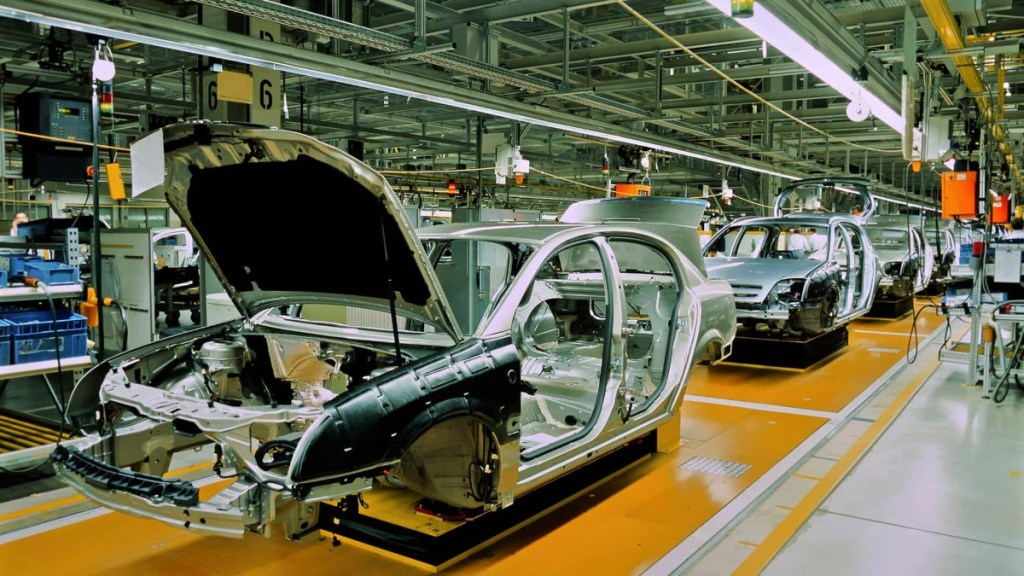By Sunandan Kapur
The automotive industry is undergoing a significant transformation driven by Industry 4.0, characterized by the digitalization of the entire value chain. Advanced technologies like AI, ML, automation, and IoT are reshaping how vehicles are designed, manufactured, and serviced, making processes more efficient, responsive, and sustainable.
Traditional manufacturing setups face numerous challenges, including inadequate facilities, inflexible production lines, and a lack of real-time visualization. In contrast, smart factories boast interconnected devices, optimized production, transparent operations, and enhanced agility. The transformation to smart manufacturing leverages the Industrial Internet of Things (IIoT), which connects devices, sensors, and actuators to improve processes across the automotive value chain.
IoT facilitates real-time monitoring, providing critical data for faster, more accurate business decisions. By identifying inefficiencies early, manufacturers can save time and reduce costs. Moreover, IoT enhances quality control, promotes sustainable practices, and improves supply chain efficiency, paving the way for a more dynamic and resilient automotive industry.
Big Data is another critical element in the ongoing transformation of the automotive industry. Original Equipment Manufacturers (OEMs) are increasingly investing in Big Data technologies for deeper insights into their own operations and the market happenings. Big Data analytics and information management tools help car manufacturers find newer, better ways to engage with customers, right from pre-purchase stage to the actual sales and through the ownership cycle. In an industry that has multiple players, each aiming for greater brand recall, market share, and profitable growth, Big Data enables companies to make informed decisions regarding their current and future operational needs, helping them identify new opportunities, overcome challenges, and remain competitive. From an operational standpoint, the analysis of large datasets enables the optimization of production schedules, supply chain management, and inventory control, leading to more efficient operations. Big Data is thus the new fuel driving the automotive industry’s growth and innovation.
Additive Manufacturing, commonly known as 3D printing, is yet another Industry 4.0 technology that holds great value for the automotive sector. It revolutionizes the design and production of automotive components. By simplifying complex designs and enabling rapid prototyping, 3D printing accelerates the development process, reduces associated costs, and enables more personalized vehicle designs. It also allows automotive manufacturers to produce customized or low-volume parts on demand, eliminating the need for large inventories and reducing storage costs. This flexibility in production greatly enhances the efficiency of the manufacturing process.
Artificial Intelligence (AI) emulates human intelligence and decision-making capabilities, using data and complex algorithms to enhance multiple aspects of automotive manufacturing. In the design phase, AI helps in creating innovative solutions that meet market demands. During production, AI systems optimize workflows, ensuring that resources are used efficiently and that production lines operate smoothly. AI is also enhancing aftermarket services, such as predictive maintenance, by anticipating potential issues before they occur. This improves vehicle reliability and customer satisfaction. AI also assists in optimizing supply chain management and inventory control, leading to more streamlined and cost-effective operations.
There is clearly a strong case for the automotive industry to adopt the aforesaid technologies. Industry 4.0 will improve operational efficiency, flexibility, and responsiveness to customer needs. It will help the automotive industry achieve greater sustainability, optimize supply chains, reduce transportation-related emissions, prevent overproduction, and conserves resources. Rethinking and revamping traditional models with the help of the latest technologies will help automotive manufacturers align their business better with the demands and the challenges of the market in an increasingly digitalized world.
(About the Author: Sunandan Kapur is the Vice Chairman of Krishna Group)
(Disclaimer: Views expressed are personal and do not reflect the official position or policy of Financial Express Online. Reproducing this content without permission is prohibited.)



















